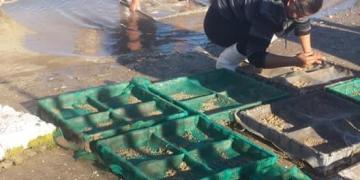Participatory Management Plans for the Ronquillo Micro-watershed Jalca
Water Harvesting in Microreservoirs and Sprinkler Irrigation
Protection of Meadows, Waterholes and Springs
Native Plant Nurseries and Afforestation
Recovery of Dye Plants in Handmade Fabrics
